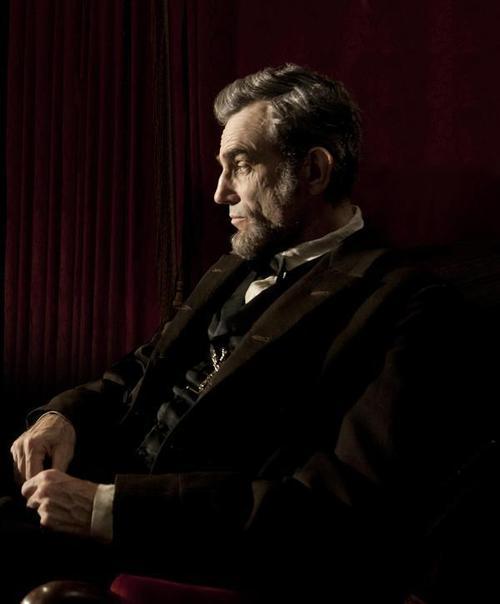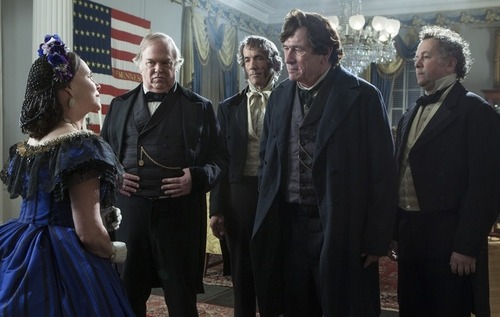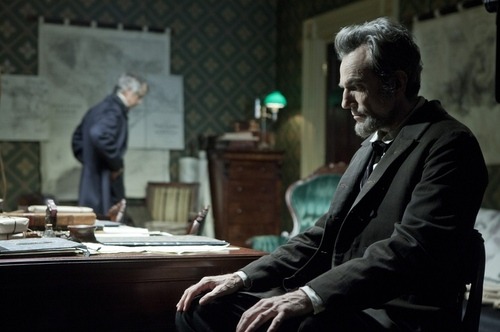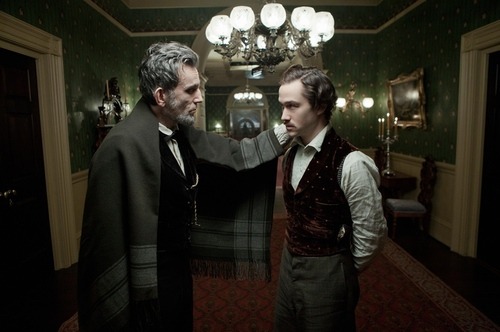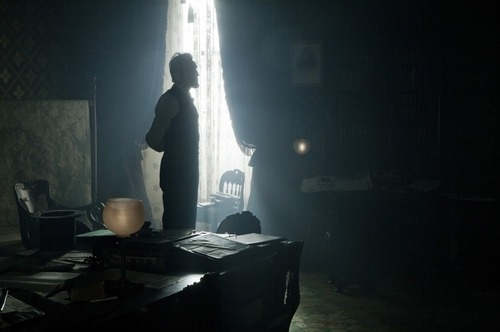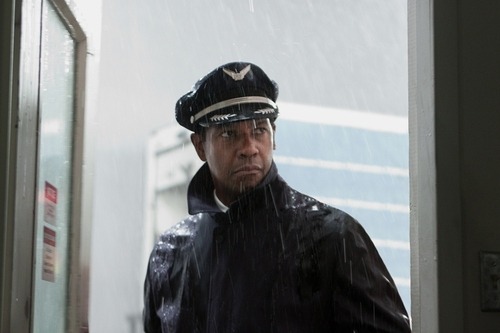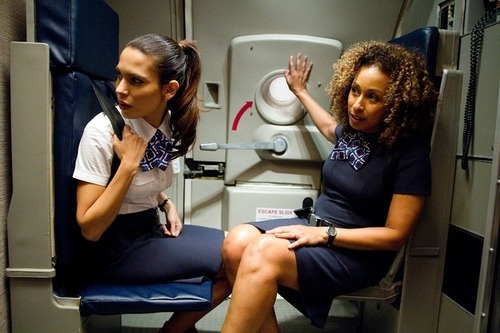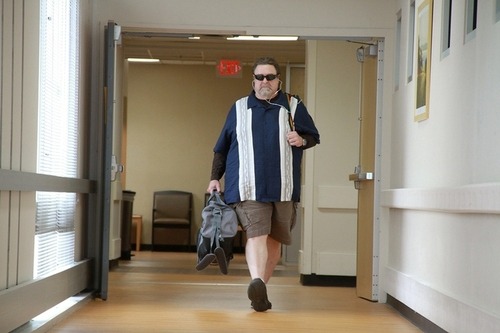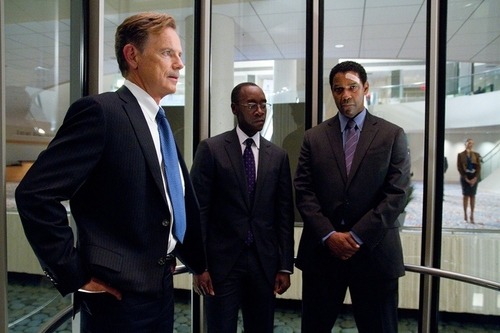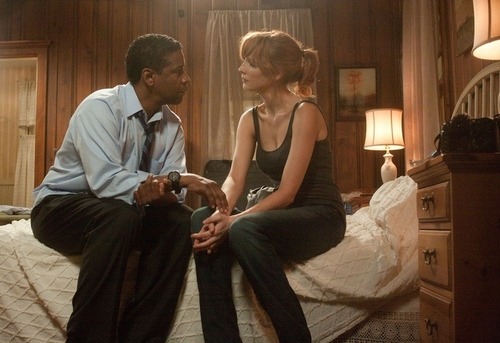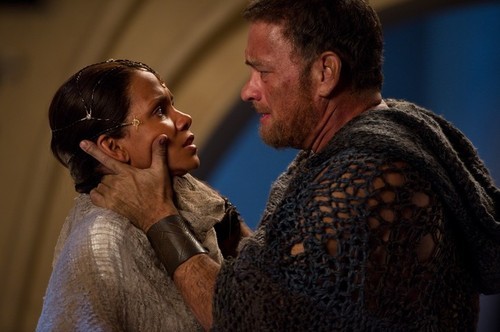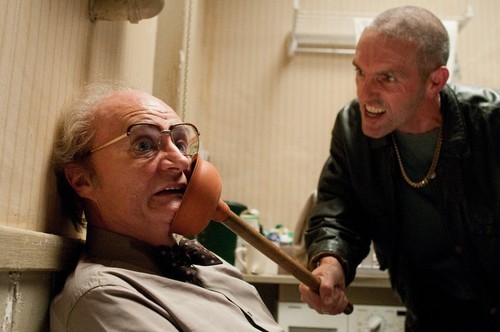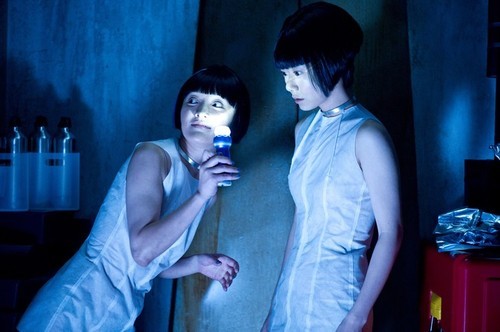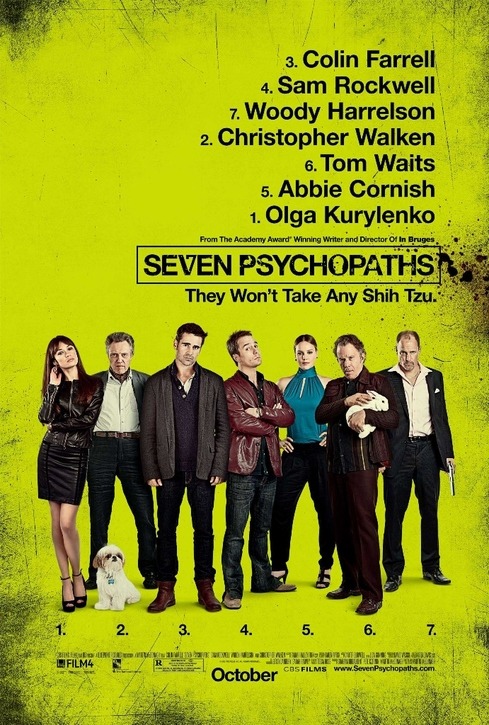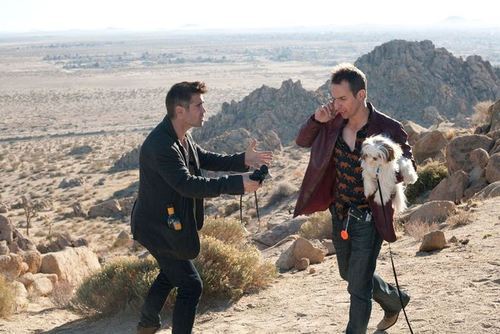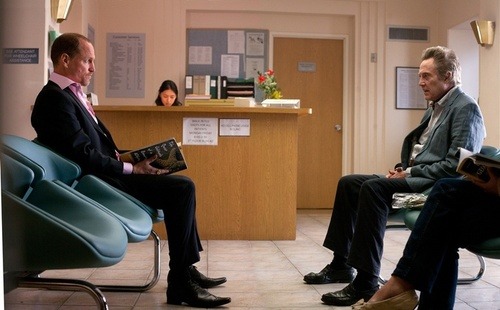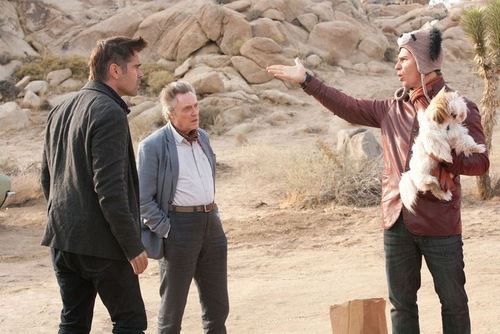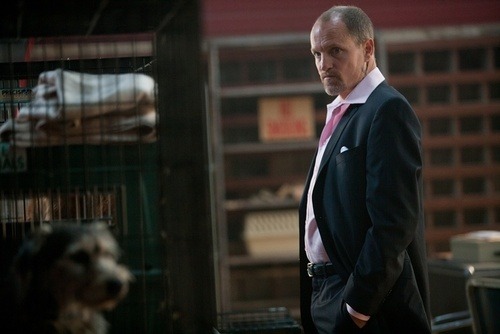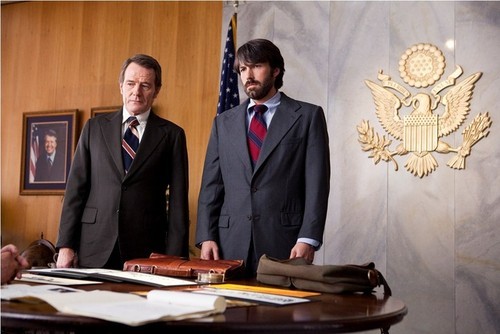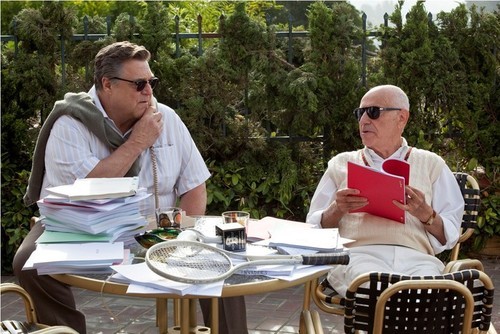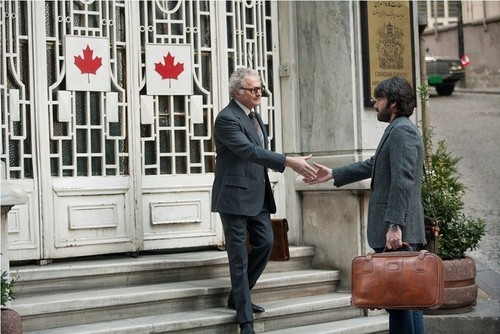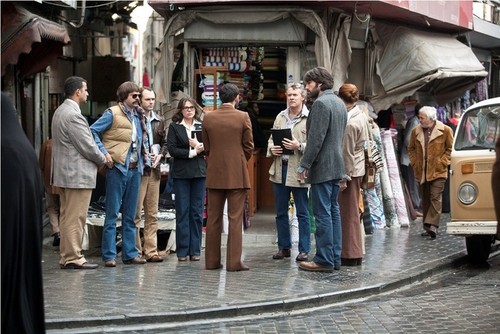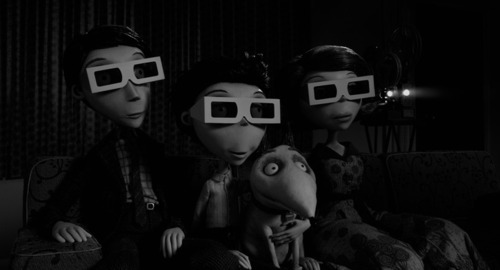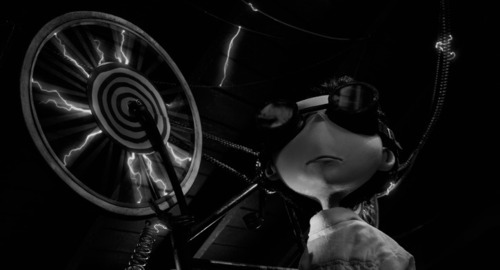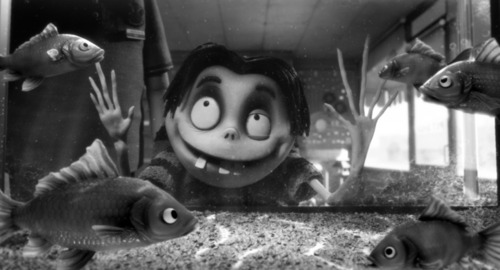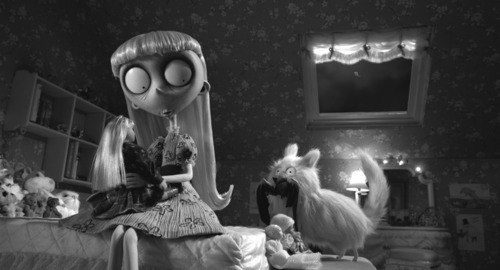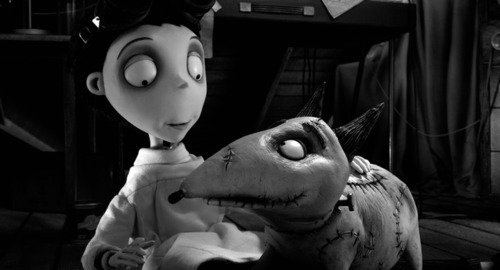"This must be why his entire nervous system was compromised."
So I'm trying something new tonight. I'm calling it "Shitty Movie Drunk Review" for now, and the plan is for me to watch a shitty movie, in this case Uwe Boll's 2005 sci-fi action flick Alone in the Dark, and write along while I'm simultaneously watching the film and getting progressively drunker. This may be a total failure, but let's see how it plays out...
First things first, the movie opens with an absolutely interminable scroll about the film's mythology, and in a stroke of misguided genius, Boll decided to have someone narrate along with the scroll. So we're like four seconds into the movie and he's already treating us like children. It's only a minute and a half, but it feels like five. I wish I was drunk already.
Boll's idea of good acting is, "this guy has an indistinguishable European accent that actually elevates my awful dialogue to the level of minimal listenability." Low-rent F. Murray Abraham here is of indeterminate origin, but his accent makes me think he was likely the first and only actor to read for the role.
And our hero (Christian Slater) makes his big entrance, saying the titular line of the film within his first three lines of dialogue. So that's what we're dealing with here. Voiceover is effective when used by some filmmakers, but here it's an excuse to explain plot points they were too lazy to incorporate into dialogue such as exposition or character development.
So it appears as if Slate is a paranormal investigator, which means he gets to be unkempt and slovenly in appearance I guess. The line "pull into this market up here," needs to be incorporated into more car chase scenes in film, I have decreed it to be so. The action scenes are so mind-numbingly bad, it's unbelievable. There are two modes in every action scene, "unwatchable and hard-to-follow handheld," or "thoroughly unnecessary slow motion." Most slow-motion is unnecessary, but Boll manages to elevate its uselessness to an art form unto itself. He seems to think that slowing down time makes everything cool, even stupid shit like a guy running out of a doorway. He took all the wrong lessons from The Matrix.
As if the bounds of believability had not already been stretched to the breaking point, we are introduced to Tara Reid playing the Assistant Curator at a Natural History Museum. This involves putting a pair of glasses and an ancient looking amulet around her neck. That's apparently all we need to buy her as someone operating on a level of intelligence high above that of mere mortals.
Boll uses a lot of top down aerial shots of the city to try and convince us that he shot the film in The US and not Vancouver. Yeah, not so much. The Slate's apartment is chockablock with ancient artifacts that help us simpletons to understand that this ain't his first rodeo, so to speak. I also sincerely hope that his tattoos were the misguided decisions of some poor, underpaid makeup artist, and not actual ink that Slate chose to adorn his body with. I'm only 17 minutes into this shit-fest, I should try not typing so much, lest I risk this being unreadable.
Another thing that pushes the limit of believability, there was a scene in a video store just now, and it was exclusively stocked with VHS tapes. This film was made in 2004, and while VHS wasn't extinct yet, it certainly no longer had a corner on the market. The soundtrack for this film is unrelenting. There has not been even a moment in this film's first twenty that was not underscored by some bombastic synth-pop bullshit.
And now we have Stephen Dorff, and I'm hard pressed to say whether this is a high or low point for him. Slate appears to be wearing one of those balance bracelets. Not necessarily a criticism, just an observation.
There's been no narration since Slate's first scene, leading me to think that they just forgot that they could keep doing it throughout the film. It's funny, I would have thought that after twenty some years in the business that Slate would stop the Nicholson routine, but he's still trying to keep it going. My guess is that he watched Chinatown every night when he left the set, foolishly thinking he could carry some of that film's genius into this one.
Tara Reid appears to have punched Slate with the heel of her hand. She certainly punches like a museum curator, too bad she's made no further attempt to look like one. You know what game I never understood was POGS. What exactly was the point of POGS? Hell if I can remember. Opinion poll, who would win in a fight: Corey Feldman or Slate? My money's on Slate.
There are so many characters walking around with flashlights, I half expect one of them to be Nic Cage. Why hasn't Nic Cage done an Uwe Boll film yet? Our first look at the creatures from this film, and they're exactly the sort of unimaginative, HR Giger rip-offs you'd expect them to be. Also, Tara Reid knows the name of the night watchman? Not bloody likely.
The commentary track for this film is awesome, if you get a chance to listen to it sometime. A high point is when Uwe Boll laments Tara Reid's adversity towards "losing her bra" in the less-than-steamy love scene later in the film. He also compares Slate (unfavorably) to Keanu Reeves. It's well worth your time.
As much as I love using both Slater and Dorff as punching bags, I doubt that anyone could have done much with this asinine material that they were given. Having said that, they don't really attempt to do anything with it at all. "This must be why his entire nervous system was compromised." Who writes this shit?
So, the aforementioned love scene is so clumsily filmed, it's ridiculous. It comes out of nowhere, and it's set to a song that sounds like it was sung by Boll himself called, I believe, "Seven Seconds Away." It's also notable for its chasteness. It wouldn't be out of place in one of the Atlas Shrugged movies it's so bland and thoroughly unimaginative.
This whole movie is such a hodgepodge of attempted grittiness, ridiculous special effects, and characters I couldn't give two shits about, I can't believe this is the fourth time I've seen it. I love bad movies, but this one is just so awful it's hard to find anything enjoyable in it. Even the novelty of Tara Reid as a curator has worn off. There's also no attempt to explain things. They'll be looking at a computer screen, talking about how all the pieces fit together, and then a bunch of dudes with machine guns show up and start shooting at monsters while Boll cranks up the shitty nu-metal soundtrack.
Okay, so that's about all I have to say about Alone in the Dark. It's asinine, inept, and I feel stupider for having watched it again. It's probably a lot of drunk regret that I'm sifting through at the moment, but I don't feel good about my decision to do this to myself. Let me know if you like this format, and if you think I should continue it.
[Header Image]


